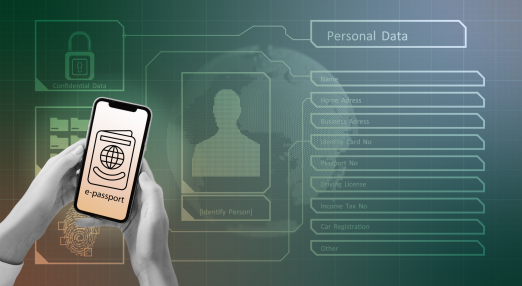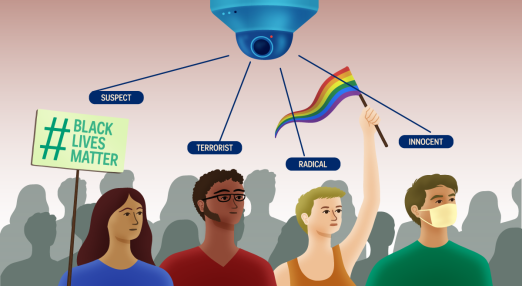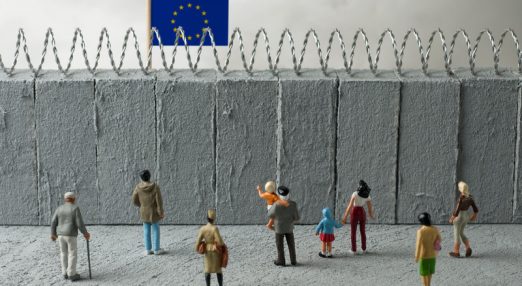Halftime for the German government: Thank you for the fine words, now let the deeds speak!
The Free Software Foundation Europe (FSFE), together with an alliance of civil society and the Free Software industry, calls on the German government to implement a sustainable digital policy and to provide the necessary funds in the federal budget now.
Filter resources
-

Halftime for the German government: Thank you for the fine words, now let the deeds speak!
The Free Software Foundation Europe (FSFE), together with an alliance of civil society and the Free Software industry, calls on the German government to implement a sustainable digital policy and to provide the necessary funds in the federal budget now.
Read more
-

Scroll more, sleep less. A Black Mirror-inspired truck in Warsaw advertises a disturbing social network… that doesn’t exist
Panoptykon’s campaign is being launched after the DSA has become fully effective with regard to VLOPs on 25 August. To comply with the new regulation, cybergiants must, among other things, introduce changes concerning their additive algorithms which they use to personalise users’ feeds. They must now explain how those algorithms work and offer at least one recommender system not based on tracking users’ personal data.
Read more
-

EDRi-gram, 13 September 2023
Are you ready to catch up on the recent digital rights developments in Europe after a nice summer break? The latest EDRi-gram has got you covered. From a fake social network that is spooking people in Warsaw to activists celebrating encryption, this edition brings you the hottest updates on everything digital. Stay informed and up to speed with the latest digital rights updates in Europe.
Read more
-

EDRi-gram, 12 July 2023
Keeping up with the fast-paced digital rights world is hard work, so we’re taking a well-deserved summer break. But there’s lots to update you on before we go. In this EDRigram, you can read about the ongoing efforts in the EU and the UK to protect encryption and keep the safety and integrity of everyone’s private communications intact. You can also read about what EU’s plans to digitise travel documents could mean for you – more convenient travelling or more discrimination? Since this is the last edition of the EDRigram before we break for the summer, we have an extended recommendation section to keep you from from missing us while we’re away. Have a great summer!
Read more
-

How EU’s plan to digitising travel documents might affect you
The EU Commission wants to store ID data on smartphones in the future and introduce contactless border controls with biometrics. This could affect all travelers in the future. EDRi member Digitalcourage submitted feedback to this EU initiative to intervene.
Read more
-

EDRi-gram, 28 June 2023
Recent developments in crucial digital European Union regulations have raised many eyebrows as we see attempts to undermine human rights. 27 civil society organisations, including EDRi, stood against the use of people's sensitive information to target them with political messages online. 65 civil society and journalist associations also urged the Council of the European Union to ensure stronger safeguards to protect journalists in the European Media Freedom Act. In this edition, you can also read about how digital rights are a civic space issue and why privacy is not a crime.
Read more
-

Digital rights for civil society and civil society for digital rights: how surveillance technologies shrink civic spaces
Digital technology has transformed civic spaces - online and offline. In our digital societies, characterised by injustice and power imbalances, technology contributes to shrinking civic spaces. And to defend civic spaces against surveillance, we need strong and resourced civil society organisations and movements.
Read more
-

EDRi-gram,14 June 2023
It’s getting hot in here – and we don’t just mean the weather. By the time this EDRi-gram reaches your inbox, the EU Parliament will have voted on the AI Act and the "e-Evidence" package. This is a crucial moment for the AI Act as we push hard and keep our fingers crossed for all the wins of the committee vote to remain after the plenary. We also have serious concerns about the e-Evidence proposal posing a threat to our fundamental rights. Along with other civil society groups, doctors and journalists organisations and internet service providers, we are calling on Members of European Parliament to reject this package. In this edition you can also read about what changed in the ten years since Snowden’s revelations about mass surveillance by the US government.
Read more
-

European citizens demand router freedom
A pan-European survey, run by the Free Software Foundation Europe, has collected information from more than 1600 end-users and highlighted several obstacles to Router Freedom, such as lack of freedom of choice, provider lock-in and promotion of equipment running exclusively proprietary software.
Read more
-

Commission launches internet fee consultation full of biased questions
The European Commission has launched an “exploratory questionnaire” about telecom corporations wishing to levy an internet fee from online content providers. EDRi’s response outlines why that’s a ludicrous idea, a threat to net neutrality, and bad news for all internet users.
Read more
-

EDRi-gram, 31 May 2023
Here is what happened since we last touched base. The EDRi network met in Belgrade for our General Assembly. We strategised, got updates from national members about the state of #DigitalRights, and enjoyed personal connection time. A BIG welcome to EDRi's newly elected Board members: Andrej Petrovski, Director of Tech at EDRi member SHARE Foundation, and Isabela Fernandes, Executive Director of TOR Project. In the last fortnight, we also celebrated 5 years of the General Data Protection Regulation. The anniversary was marked by the €1.2 billion fine for Meta issued thanks to EDRi member noyb's work. The decision required 10 years and 3 court procedures against the Irish Data Protection Commission, which shows the need for better GDPR enforcement.
Read more
-

The EU must respect human rights of migrants in the AI Act
Amnesty International Secretary General Agnès Callamard has sent an open letter calling on the Rapporteurs and members of leading committees on the EU Artificial Intelligence Act (AI Act) to prohibit the use of certain artificial intelligence (AI) systems which are incompatible with human rights of migrants, refugees, and asylum seekers in the AI Act.
Read more
